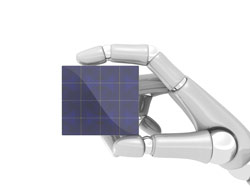 | |
| Exponential growth raises economic & social questions. |
It’s been 27 years since Al Gore invented the internet.
OK, I thought that might get your attention. We’ll talk
about politicians and blog factual integrity later.
It’s been 27 years since the internet was initiated, and in
that time we’ve seen it go from a data sharing platform for scholars and
scientists to a widely used communication platform in the mid-nineties to an
economic engine that has grown into the world’s fifth most economically
powerful entity, only after US, China, Japan, and India. (If you were to take a
leap and make the Internet a country.)
The reality of all this is that ONLY 4.1-percent of the GDP
across the G-20, or $2.3 trillion USD, is attributed to the internet. Most
would agree that e-commerce accounted for much more of the world’s business.
Perhaps I’m ahead of the average person’s tech adoption curve, but even so I’m
pretty certain that the internet touches every single person somehow at this
point. I guess I am wrong.
According to a recent bgc.perspectives report the
internet is still dwarfed by the big four economies of the world.
If the internet is as
entwined in our lives as it is now, and it’s only 27 years since domain name
00000000000001, and it’s only 4.1-percent of the GDP, what happens in another
27 years? Does the internet take on a life of its own? The report references Ray Kurzweil’s work The Age of
Spiritual Machines: When Computers Exceed Human Intelligence, in which the
author suggest that by 2099 mammalian carbon neuro-circuits will at the very
least be combined with nano-circuitry in some sort of hybrid system or all but
be replaced by non-organic circuits, which denotes some compelling issues.
The profound impact the internet has on every aspect of our
economy and society is staggering in itself already.
In our own industry, having
your resume online, using social networking and job boards for both job-searching
and recruiting has become the mandatory path. Similar changes have already or
are already going the same way.
With 4.1- percent of the GDP affecting virtually every aspect
of our lives, where does it go from here?
Can it become 20-percent of the GDP or more? Will e-commerce
dominate the world economy in Kurzweil’s vision of 3-D, holographic and sensory
virtual reality? Evidence of exponential
growth both economically and with regard to technology certainly suggests that
this is not only possible but probable. Are there that many replaceable
non-internet based financial transactions available? Is there a theoretical cap
to the financial growth of the internet?
I know these are all
futurist type of questions. But with Intel’s first processor having only about
250,000 transistors and one 27 years later having 213 as many, and
with the internet approaching the world’s largest nations in terms of economic
clout, is there cause for concern? Perhaps (and perhaps not) we should step
back and reexamine the future.
I also know I am not the first to
raise such questions. Hollywood has been all over this one but, from a layman’s
perspective, maybe they’ve touched on the subject with good reason. Sci-fi
fantasies like A.I. , Bicentennial Man and countless others
have explored political and social effects of technology growth . Are they
wrong? Or are they just that: Fantasy? Or do we need to start taking a second
look at the interconnected world and start planning?
I mean to say that only 30 years
ago a wristwatch mobile communications device was a thing out of the comics. I
know I am going way out on the ledge of Jules Verne, Leonardo da Vinci or Dick
Tracy with this. It seems right on the edge of reason, but worth pointing out.
(By the way, there are several versions of wristwatch mobile devices available,
many with exponential computing power over the original Intel processor of 27
years ago.)
In the end, I am not suggesting Skynet is going to swoop in
to take us and Sarah Conner out. What I am suggesting is that we, as a
community of experts, need to start working with characters like the former
governor of California and his cohorts to start addressing not only the
economic realities of exponential growth of e-commerce, but the social and
political ramifications of instant global inter-connectivity as well.
